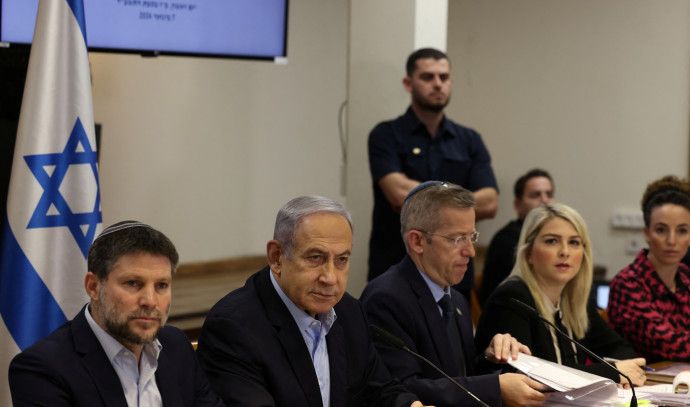At the beginning of the war, it was as if Prime Minister Benjamin Netanyahu and US President Joe Biden were in sync for the first time since this government was formed.
But as expected, this honeymoon didn’t last very long.
Though Biden has been devoted to Israel and has invested time, funds, and military assistance towards the war effort, the two have reached a point where they haven’t been in direct contact for weeks, according to several sources.
“I will not compromise on full Israeli security control over all the territory west of [the] Jordan [River] – and this runs contrary to a Palestinian state,” Netanyahu wrote in a post on X, formerly Twitter, on Saturday night.
It was the third time he had spoken about the issue in the 48-hour-period.
An issue with communication
Earlier in the day, the Prime Minister’s Office provided further details, stating that in his discussion with Biden, Netanyahu reaffirmed a stance he has maintained for a long time.
US President Joe Biden, Prime Minister Benjamin Netanyahu during the war (credit: HAIM ZACH/GPO)
The PMO explained: “After Hamas is eliminated, Israel must retain full security control of the Gaza Strip to ensure that Gaza won’t pose a threat to Israel, and this conflicts with the demand for Palestinian sovereignty.”
Advertisement
Netanyahu, who is already thinking of the next election, added in a press conference on Saturday night that “those who speak of the day after Netanyahu, are talking about the creation of a Palestinian state led by the Palestinian Authority.”
Ynet reported last week that Netanyahu did not inform IDF Chief of Staff Herzi Halevi, Defense Minister Yoav Gallant, or Shin Bet (Israel Security Agency) director Ronen Bar about the agreement to transport medications into Gaza for the captives. The three found out about this through the media.
A senior official recounted that Mossad head David Barnea verbally updated Netanyahu, and afterward, the PMO released a statement about the agreement. The senior official claimed this resulted in a “delay of three to four days in carrying out the deal.”
Netanyahu must decide what his agenda is. What is the endgame for this brutal war? Is it a one-state solution? A two-state solution? Is Israel’s agenda that the countries in the region absorb millions of Palestinian refugees?
Three months ago, we wouldn’t pressure Netanyahu about focusing on the future, since it was clear to most Israelis that Israel needed to enter this war, defeat Hamas, and release our citizens and soldiers being held captive.
But more than three months later, thousands of our brothers and sisters were killed or severely wounded, and the dead-end junction that we can all see ahead has caused us to speak up.
We urge Prime Minister Netanyahu to decide on a clear and solid agenda for the near and long-term future.As the conflict drags on with its heavy toll, the Israeli public’s patience is wearing down. The ongoing war has not only cost numerous lives, but also raised questions about the long-term strategy of the Netanyahu administration.
Citizens are increasingly demanding clarity on the government’s endgame. Is the aim to completely dismantle Hamas, leading to a prolonged military occupation, or is there a diplomatic solution on the horizon that might bring lasting peace? These questions are not just rhetorical but crucial for shaping the region’s future.
The lack of direct, frequent communication between key Israeli leaders during such a critical period is alarming. It suggests a fragmented approach at the top levels of those involved in the decision-making, which could have severe implications for both the conduct of the war and the post-war scenario.
Moreover, Netanyahu’s strong stance against a Palestinian state, reiterated in his recent statements, has significant implications for Israel’s long-term peace and security. While his commitment to ensuring Israel’s security is clear, the absence of a viable peace plan could lead to perpetual conflict. The Israeli public, having endured the horrors of war, deserves a road map towards sustainable peace.
Netanyahu must articulate a clear vision that goes beyond the immediate military objectives.
This vision should address the region’s political future, the humanitarian needs of all affected populations, and the role of international partners in securing long lasting peace.
Without this, the cycle of violence is likely to continue, with grave consequences for all parties involved.

